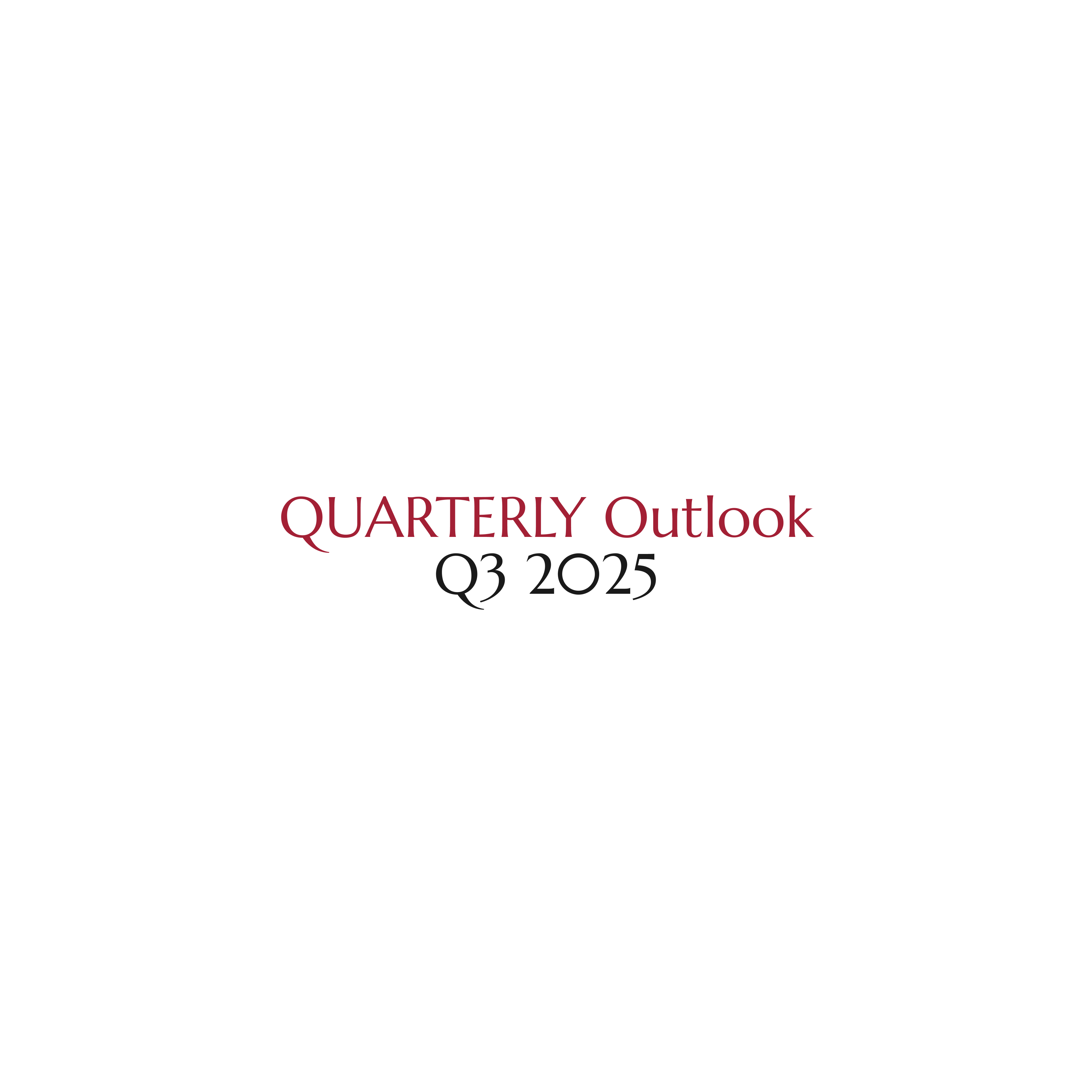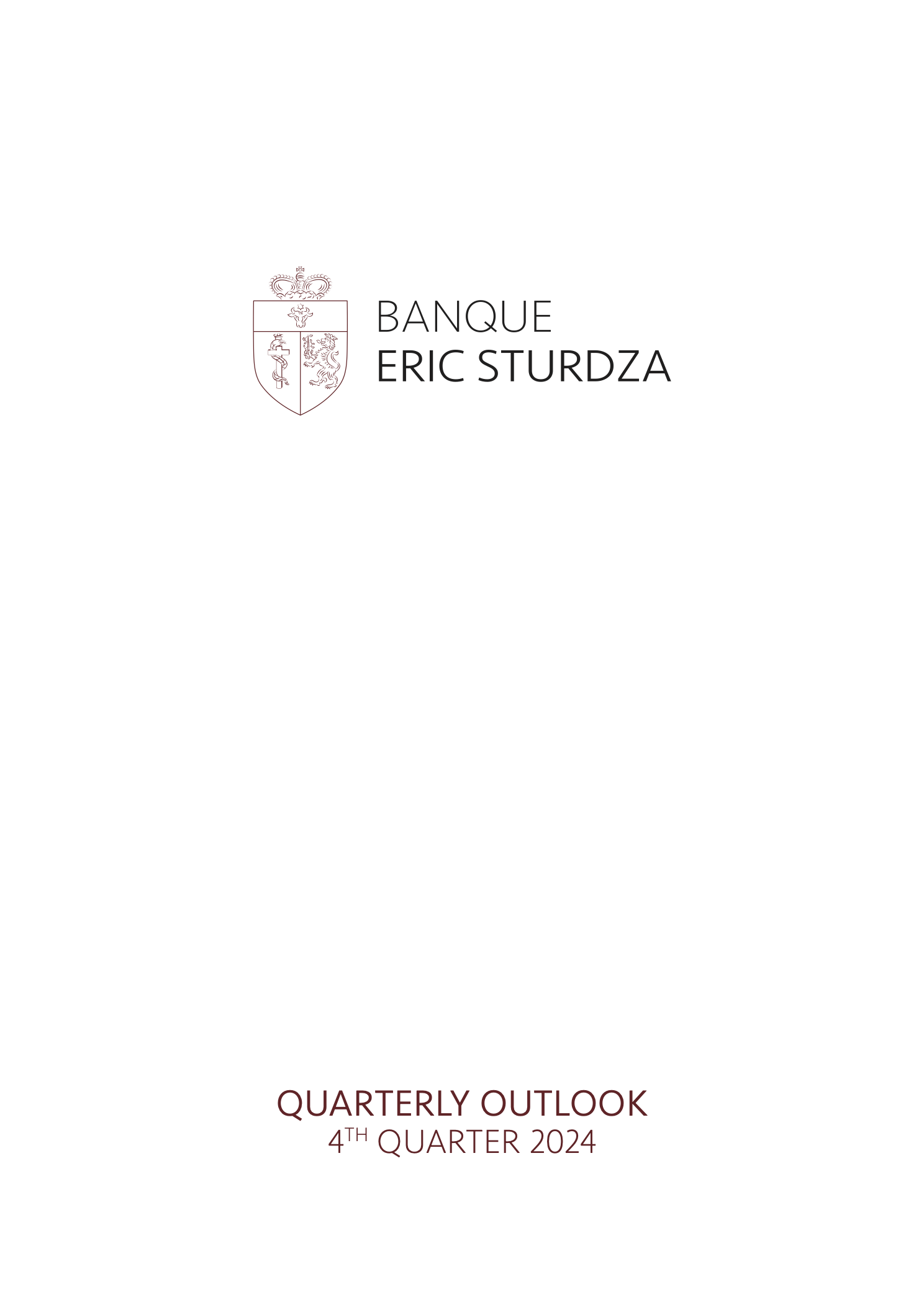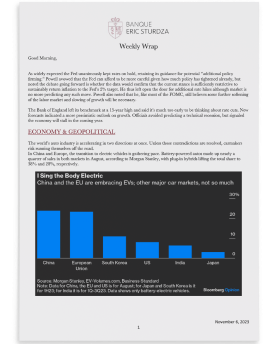Was it for being constantly accused to chicken out ? President Donald Trump had finally chosen to strike 3 Iranian military targets well before the end of the 2-week period he had given himself. The TACO trade (Trump Always Chickens Out), the term investors coined to refer to the US President’s frequent backpedaling on various issues, may well have led to a major geopolitical act. And yet, since the sudden acceleration of conflicts in the Middle East, the markets have seemed surprisingly resilient. It is true that oil gained 15% when Israel struck Iran, but equity indices reacted very little, while the volatility index remained cautiously around the 20 level: this is not complete serenity, but it is a far cry from the stress levels reached beginning of April... After the US attacks and mild Iranian response, equity markets bounced back and oil price sharply corrected. We are discussing in this newsletter the reasons for such a dichotomy. To get to the point, the allocations have not changed drastically since the start of the conflict. With respect to that, the positioning adopted reflects the statistical evidence and the widespread expression that in financial markets the worst is never certain.
Investors love anniversaries and the spectacular figures that go with them, so we couldn't ignore this double anniversary: 1- Exactly 25 years ago, the internet bubble burst and the Nasdaq lost more than 75% of its value in the two years that followed! 2- Five years ago, on 12 March 2020, at the start of the pandemic, the S&P500 index reached a low of 2192 (by the summer of 2021 it had already doubled!) This is a good opportunity to remember the adage “Stock investors always underestimate trends!” And the funeral? It's that of the Trump-trades, which had a very short life. The US President election was expected to benefit the US dollar, US assets and US small mid-caps, and conversely to penalise the European and Chinese markets. The Chinese and European markets in particular are now outperforming the US market. In the Europe-US comparison over some 50 years, we can see that European markets have fallen very sharply since 2008, reflecting the growth differential between the two zones and the US supremacy in Tech. However, we can also see that the recent European market catch-up is derisory if we put it into long-term perspective. The stock market adage surely deserves a 2nd reminder: Investors always underestimate trends... We are discussing these topics as well as threats linked to trade wars.
Once the turkey has been digested, the disillusioned European investor will note that - as usual (16 times out of 17 since 2008!) - US markets are out-performing other markets, the European one in particular. This is routine, although the scale of the S&P500 out-performance in 2024 is quite exceptional: +23% Stateside compared with a meager +6% over on this side of the Atlantic for the STOXX600. There is no shortage of structural explanations for the US out-performance and we are detailing them in this newsletter… In light of the 2024 sequence, Of the two alternatives available to investors: Remain invested with the winners (the technology sector) among the winners (the US market) or invest in more troubled areas, we have chosen to do both. On one hand, it might be too late to increase already sizeable allocations to US “best in class” yet very expensive business models. On the other hand, expectations are so low for the 2nd group that the slightest upturn could produce outstanding returns. Diversification is the only “free lunch”, and we believe that this adage is particularly relevant for a good start to 2025. We are discussing these various topics in our newsletter.
Fifty basis points and an anniversary
Half a percentage point: after a long wait, the US Federal Reserve's decision is finally known: US short term rateshave been cut to a range of 4.75 to 5%. To say that the news had been expected would be an understatement. Jerome Powel’s speech was then heavily scrutinized and market participants were happy to learn that “the upside risks to inflation have diminished and the downside risks to employment have increased”. They looked at past market sequences and quickly remembered that when the FED cuts rates by 50 basis points or more -provided there is no recession- markets rise on average by 16% in the 6 following months. It's a big “if”, but let’s enjoy the present moment. September also marks a two-year anniversary, the one of the brief interim of Liz Truss as UK Prime Minister before the announcement of unfunded tax cuts triggered a brutal fall of UK assets and what would be remembered as a “Liz Truss moment”. In France, this anniversary has a special resonance. This “Liz Truss moment” could also applied to the USA, where one of the few common points between the two candidates is the limited interest in addressing the debt issue. Central bankers have often “saved the day” for the markets, but there are limits to what they can do, and politicians must not go looking for them. On both sides of the Atlantic, we must be wary of repeating the British episode of September 2022… We are addressing these topics in this newsletter.
Elections and Financial Markets
Just as the French were getting ready to buy tickets for the Olympic Games, or at least turn on their TVs, Emmanuel Macron's surprise dissolution of the French parliament in the wake of the European elections stole the headlines from the French press, and often from the economic news of the Eurozone. Markets quickly adjusted. The CAC dropped 6.5% compared with a 2.3% drop for the European benchmark (STOXX600), theeuro lost 1.5% against the Swiss franc, and the yield spread between German and French debt widened from 50 basis points to 80 basis points. At the other end of the spectrum, the US market is in insolent health, and the stock market craze surrounding Nvidia continues. One of this month's lessons is that the political factor we feared in 2024 is making a comeback, but not necessarily where we expected it. This risk is likely to bring well-established stock market trends to a halt. All the more reason to remain cautious in terms of allocation and, rather than chasing certain themes in the general euphoria, to start considering some of the "collateral victims" of the current environment. We develop some of these ideas in this investment letter.
Time to question US exceptionalism?
This political theme, inspired by the theory of manifest destiny, starts from the premise that the United States, because of its history and its democracy, has a special role to play in the Concert of Nations. Rarely has this set of ideas seemed so topical either from a geopolitical, economical or market standpoints. We are coming back on these subjects in greater detail in our latest quarterly outlook and for the first subject in the geopolitical report recently issued in partnership with an intelligence and advisory firm. As far as financial markets are concerned, March has proved rather encouraging, with the market’s performance broadening : Gold, Japanese equities, S&P500 Equal Weighted, European cyclicals and even industrial metals... These factors are all reasons to hope for a slightly more balanced macroeconomic scenario and broader participation across asset classes, geographical zones and styles.
Disappointed in a good way?
One year ago, investors were dreading the arrival of a difficult 2023 against a backdrop of high inflation and a probable slowdown or even recession in the United States. However, neither geopolitical factors nor a major banking crisis managed to break US momentum. At nearly 2.5% for the year, US growth has more than held its own... The world’s major indices are up 20%, and the US stock market is doing even better, with a 24% gain for S&P500, (even if its Equal Weighted version is posting a more modest 11.5% rise). 2023 will have “disappointed in a good way”, but even the most optimistic forecasters will have been left in the lurch by the strength of the markets. In this euphoric phase, Asia excluding Japan is the exception, heavily penalized by the Chinese market. Throughout the year, the fixed income world was also very turbulent and more than ever, markets remain dependent on central bank policy and rate expectations. We have always believed this, and looking ahead to 2024 it’s essential to form an opinion on anticipated rate cuts. In this quarterly newsletter, we are discussing this topic and its implications, as well as our outlook in greater detail.
Let’s talk
"*" indicates required fields




